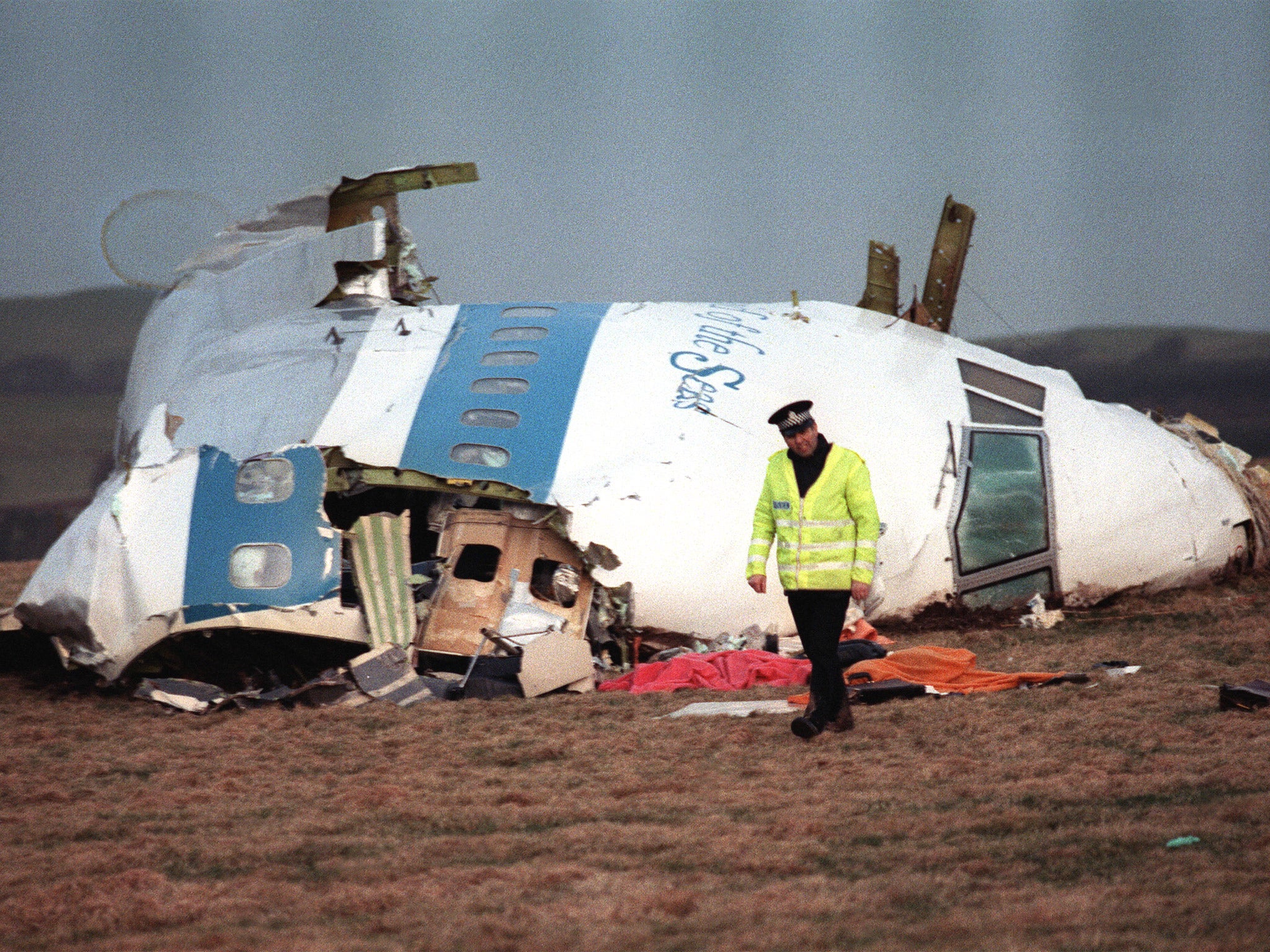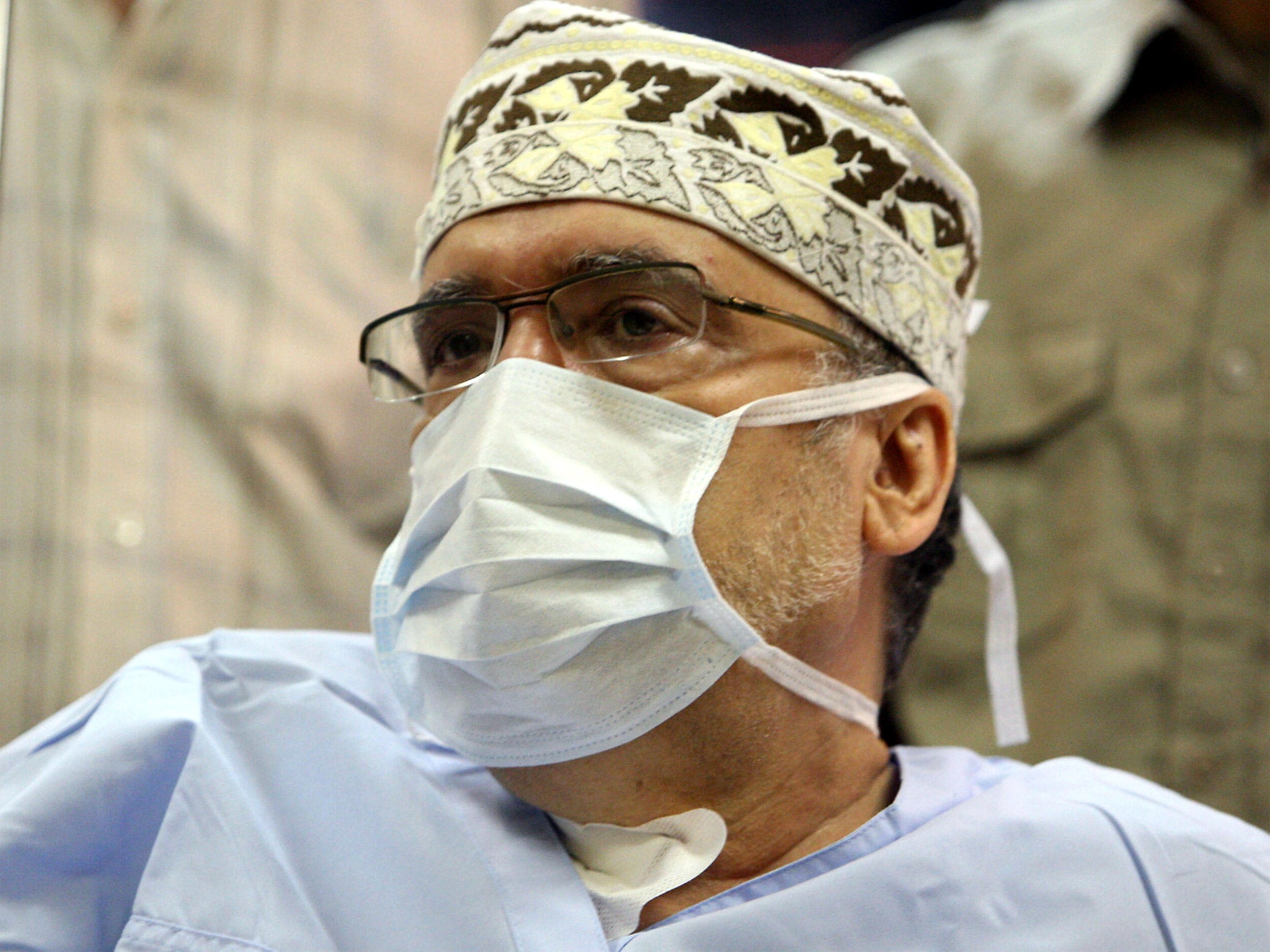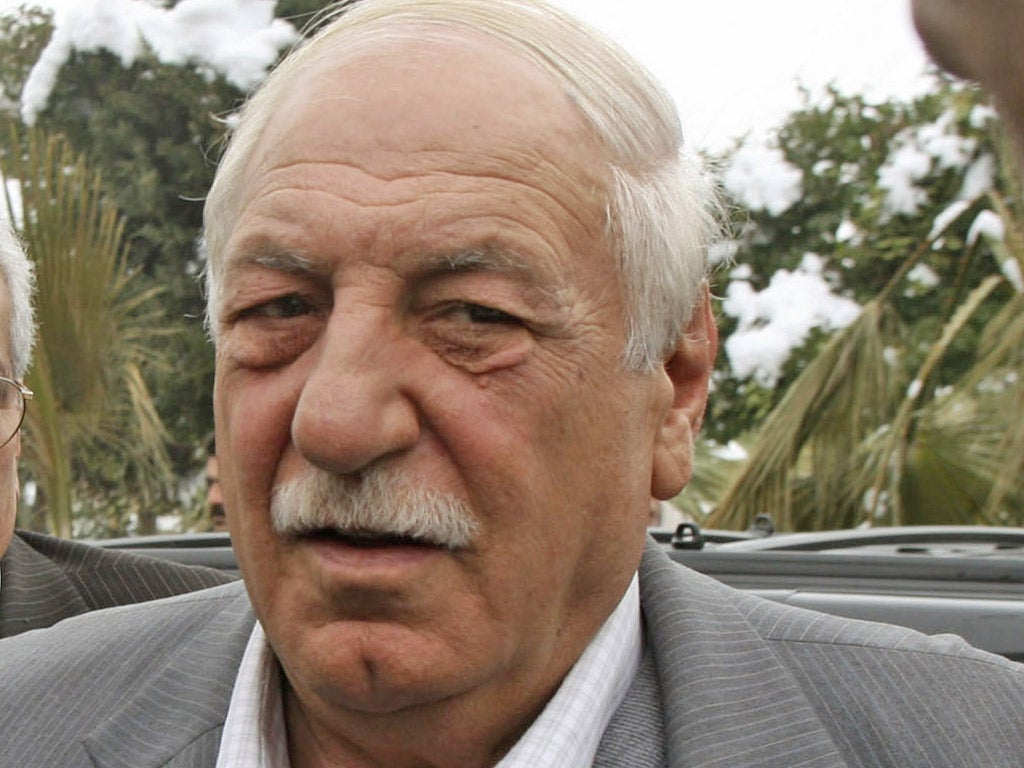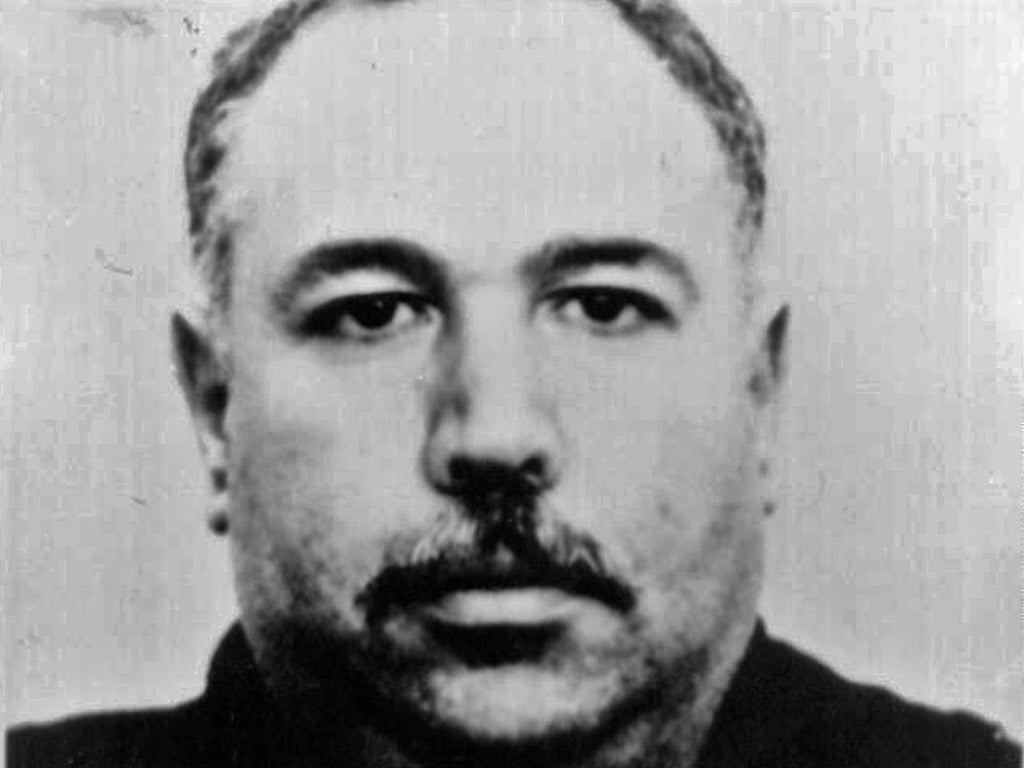New Lockerbie report says Libyan was framed to conceal the real bombers
Documentary claims al-Megrahi was set-up for 1989 terror attack as a pawn in Middle-East politics

On 11 September 1989, eight months after Pan Am Flight 103 was blown out of the skies above Lockerbie killing all 259 people on board and 11 people on the ground, a US congressional committee in Washington DC was given information on the mass murder by an associate director of the FBI.
The committee was told that analysis and leaks from western intelligence services, intercepted messages from Tehran and Damascus, and other material gathered by the US National Security Agency (NSA) meant the identification of those responsible was now possible. The organisation that the Congress members were pointed towards was the Popular Front for the Liberation of Palestine, General Command (PFLP-GC).
And now, after a quarter of a century which saw a ground-breaking trial in 2001, the conviction of the Libyan Abdelbaset al-Megrahi, a £1.7bn compensation payment to the victims’ families approved by the former Libyan leader Colonel Muammar Gaddafi, and a controversial deal in 2009 to allow Megrahi to drop his latest appeal and return to Libya to die, the PFLP-GC, once again, has been identified as the group who planned and carried out the deadliest single terror attack on European soil.
A three-year investigation by Arab broadcaster Al Jazeera has effectively returned the entire Lockerbie inquiry back to its initial suspects.
Abolghassem Mesbahi, a former Iranian intelligence officer who defected to Germany in the 1990s and who once reported directly to Iran’s former president, Akbar Hashemiu Rafsanjani, claims that the supreme leader, Ayatollah Khomeini, ordered the destruction of the Pan Am airliner in retaliation for the USS Vincennes airstrike on an Iran Air passenger jet over the Persian Gulf six months earlier.
The documentary resulting from the Al Jazeera investigation names the Syrian-based Ahmed Jibril as the mastermind behind the PFLP-GC operation, claiming he was recruited and paid to deliver the Ayatollah’s revenge. Although material in the programme adds weight to evidence about Jibril’s central role, the NSA will not be surprised. Shortly after the destruction of the Iran Air flight, US intelligence sources claimed to have intercepted evidence of a call between Jibril and the then Iranian interior minister, Ali Akbar Mohtashemi, in which the Syrian offered to attack European targets in return for fees said to be as high as $10m.
The two British investigators involved in the Al Jazeera film, Bill Cran and Christopher Jeans, were also given access to a report compiled by Megrahi’s defence team in 2002. The private investigation for Megrahi’s lawyers, called Operation Bird, involved the former New York district attorney, Jessica de Grazia, and Philip Corbett, a former chief security adviser to the Bank of England.
Their evidence, never examined by a Scottish court, alleges that the case against Megrahi was “directed off course” by political interference from both Washington and London. The new documentary suggests that the switch away from the PFLP, Syria and Iran towards Libya was effectively rubber stamped in a 1989 telephone call between the then British Prime Minister Margaret Thatcher and George W Bush in the White House.

Their agreement, Al Jazeera suggests, was a diplomatic insurance policy to keep Syria out of the frame because Washington believed it needed its support in the emerging tension between the US and Saddam Hussein’s Iraq.
Megrahi, an airline official reclassified as a Libyan intelligence officer, appears to have become a sacrificial pawn in wider diplomatic games. Sentenced to life for the bombing in 2001, his conviction centred on being able to place him at a key time in Malta – which was regarded as the starting point for a Samsonite suitcase that contained a Toshiba radio cassette machine packed with Semtex explosive.
Prosecutors in Scotland successfully argued that the suitcase was smuggled from Malta on to a flight to Frankfurt, subsequently transferred to a flight to London and then, at Heathrow, was transferred to Pan Am Flight 103. Some 38 minutes after it took off from Heathrow, the bomb exploded in the bottom of an aluminium luggage container just a few feet from the aircraft’s fuselage. It blew open a hole that sealed the fate of all on board.
The Operation Bird report, which has been examined by the Exaro news investigative website, suggests that Palestinian terrorists, meeting in Malta, decided to “divert the blame to Libya” and that they successfully incriminated Megrahi as a suspect anticipated to be on the radar of western intelligence agencies.
Al Jazeera suggests that among those involved was Mohammed Abu Talb, who headed the Swedish cell of the organisation. Two others are named: a Palestinian, Hafez Dalkomoni, who was put in charge of the newly-gathered cell, and a Jordanian regarded as having knowledge of bomb-making, Marwan Khreesat. Jibril is said to have returned to Germany from Malta to prepare the attack along with Khreesat, while Dalkomoni flew to Malta, allegedly to advance the plans, as did Talb.
Again, none of the names will surprise the NSA or sources at the Bundeskriminalamt (BKA), Germany’s federal investigative police. The BKA had both Dalkomoni and Khreesat under surveillance from October 1988, knew of Iran’s threat to avenge the USS Vincennes attack, and had found a terrorist arsenal in a Frankfurt apartment which pointed an imminent attack.
Both men were arrested months before Lockerbie. Four bombs were recovered in the arsenal, with evidence that a fifth had been constructed. Al Jazeera’s claim that a fifth bomb from the original arsenal was used to down Flight 103 lends further evidence to another long-held theory.
A Malta shop-owner, Tony Gauchi, helped place Megrahi in Malta at a specific time. A huge US reward may have helped his memory, but initially Gauchi had identified Talb from a list of customers at his shop.
New evidence also shows the bomb was unlikely to have come from Malta, and instead was probably placed precisely inside a luggage container on the ground at Heathrow, then later loaded on to Flight 103.
As The Independent suggested in an article last December, the case against Megrahi has disintegrated to the point where it can no longer be considered safe. The Malta connection is now shown to be a concoction described as “a perfect operation” by the PFLP in the Operation Bird report.
And if, as Al Jazeera suggests, evidence now points to Talb as the man likely to have planted the bomb, where does that leave the conviction of Megrahi and the reputation of Scottish criminal justice?
The Scottish Crown Office says it is unmoved by the Al Jazeera documentary and that nothing has changed. Its statement said: “Mesbahi’s claim that Iran was responsible was first reported in the media in the late 1990s and was available to the defence before the [Megrahi] trial but they did not call him as a witness.”
The Crown Office remains confident that the three senior judges who convicted Megrahi got it right, and that the five Appeal Court judges who later upheld the conviction also got it right. Equally, Tehran has dismissed any suggestion of guilt. “We, once again, deny Iran’s role in this issue,” a foreign ministry spokeswoman said.
Twenty five years on from the destruction of Flight 103, Lockerbie is no longer just a name for a terrorist atrocity. It has become synonymous with an injustice – which refuses to remain unresolved.
Secret suspects: Four faces linked to flight
Mohammed Abu Talb
Egyptian based in Uppsala near Stockholm, and a member of the PFLP-GC’s Salvation Front group. Joined the Egyptian army at 16, spent time in Armenia on a commando training course, and in the Soviet Union. Talb joined the military wing of the PLO in 1970. Was in Malta during the October 1989 raids on Neuss and Frankfurt. Evidence links him to the shop in Malta where clothes were bought that were placed inside the case that carried the Semtex bomb that destroyed Flight 103. Later jailed for series of bombings in Scandinavia. Lives in Sweden.

Ahmed Jibril
Born in Palestine, he is alleged to have founded the PFLP-GC in 1968. Jibril is said to be involved in terror campaigns targeting both Israel and the United States. Iran regarded Jibril’s reputation for taking down aircraft as key to their alleged plan to avenge the shooting down of an Iranian commercial aircraft by a US warship in July 1989 while flying from Tehran to Dubai (290 people died). Now aged 75, Jibril’s organisation is thought to be involved in the current Syrian civil war, on the side of the Syrian army. (Pic credit: Getty)
Hafez Dalkomoni
Head of the West German cell of the PFLP-GC in the late 1980s. Lost part of his right leg in a botched bomb attack in 1969. Lived in Neuss near Dusseldorf. Visited by Marwan Khreesat in October 1988, and was under German police surveillance. Alleged to have travelled to Malta to prepare attack on US aircraft. Police raided flats in Neuss and Frankfurt in October 1988 and found Semtex, grenades, mortars and dynamite. In jail at time of Lockerbie, convicted of troop train bombings in 1987 and 1988, sentenced to 15 years. Thought now to be in Syria.

Marwan Khreesat
Jordanian PFLP-GC technician. Once arrested by the German BKA police but was later released due to a lack of evidence. It was later alleged that he was a “mole” who reported back to Jordanian intelligence and their West German counterparts, the BND. Khreesat was reported to have made five Toshiba-Semtex bombs, one of which was the device used to blow a lethal hole in the fuselage of Flight 103. Khreesat was never charged in connection with Lockerbie. He now lives in Jordan.
